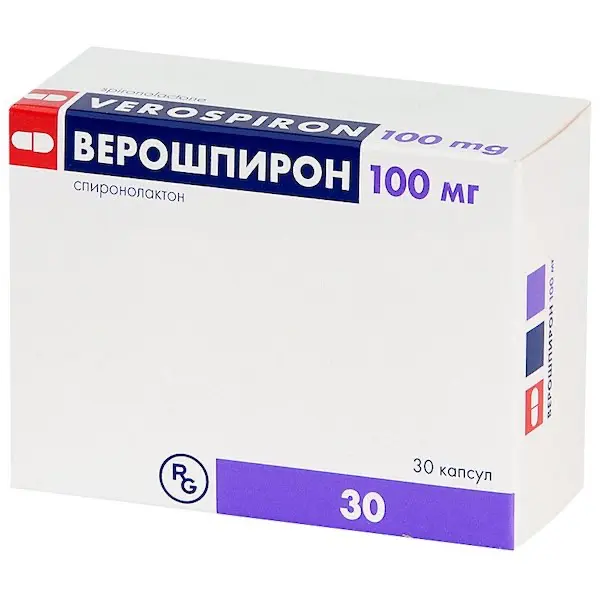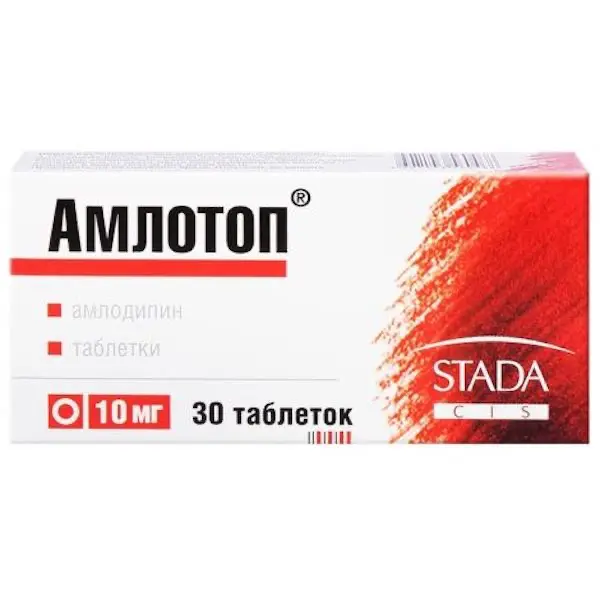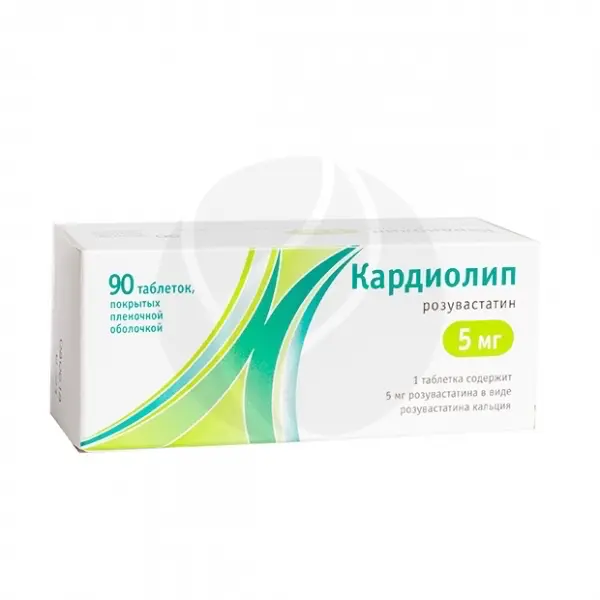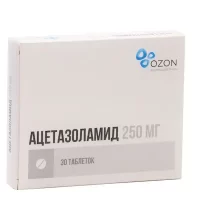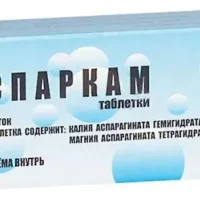Description
Veroshpiron Pharmacodynamics
Potassium-saving diuretic, competitive aldosterone antagonist.
In the distal parts of the nephron, spironolactone prevents sodium and water retention by aldosterone and inhibits potassium withdrawal effect of aldosterone, reduces permease synthesis in aldosterone-dependent part of the collecting tubes and distal tubules. By binding to aldosterone receptors, it increases excretion of sodium, chlorine and water ions with urine, decreases excretion of potassium ions and urea, reduces urine acidity.
The hypotensive effect is due to the diuretic effect. Diuretic effect appears on the 2nd-5th day of treatment.
Indications
– Essential hypertension (as a part of combined therapy);
– Edema syndrome in chronic heart failure (can be used as monotherapy and in combination with standard therapy);
– conditions in which secondary hyperaldosteronism may be found, including liver cirrhosis accompanied by ascites and/or edema, nephrotic syndrome and other conditions accompanied by edema;
– Hypokalemia/hypomagnesemia (as a prophylactic agent during treatment with diuretics and when other ways to correct potassium levels cannot be used);
– primary hyperaldosteronism (Conn’s syndrome) – for short preoperative treatment;
– to establish the diagnosis of primary hyperaldosteronism.
Contraindications
– Addison’s disease;
– hyperkalemia;
– hyponatremia;
– Severe renal insufficiency (CKR less than 10 ml/min);
– anuria;
– lactose intolerance, lactase deficiency, glucose/galactose malabsorption syndrome;
– pregnancy;
– Lactation period (breastfeeding);
– children under 3 years of age;
– Hypersensitivity to the drug components.
Caution should be exercised when using the drug in case of hypercalcemia, metabolic acidosis, AV-blockade (hyperkalemia promotes its enhancement), diabetes mellitus (with confirmed or suspected chronic renal failure), diabetic nephropathy, surgical interventions, administration of drugs that cause gynecomastia, local and general anesthesia, menstrual disorders, liver failure, liver cirrhosis, and elderly patients.
Dosage and administration
- In essential hypertension a daily dose for adults is usually 50-100 mg once and may be increased up to 200 mg, the dose should be increased gradually, once every 2 weeks. To achieve an adequate response to therapy, the drug should be taken for at least 2 weeks.
- Dose adjustment is carried out, if necessary.
- In idiopathic hyperaldosteronism, the drug is prescribed in a dosage of 100-400 mg/day.
- In severe hyperaldosteronism and hypokalemia, the daily dose is 300 mg (maximum 400 mg) in 2-3 doses; when the condition improves, the dose is gradually reduced to 25 mg/.
- In hypokalemia and/or hypomagnesemia caused by therapy with diuretics, Veroshpiron is prescribed in a dose of 25-100 mg/, once or in several doses. Maximum daily dose is 400 mg if oral potassium preparations or other methods of potassium deficiency supplementation are ineffective.
- In diagnosis and treatment of primary hyperaldosteronism as a diagnostic tool in a short diagnostic test Veroshpiron is prescribed for 4 days at 400 mg/, distributing the daily dose into several doses per day. If blood potassium concentration increases while taking the drug and decreases after discontinuation, the presence of primary hyperaldosteronism may be assumed. In a long-term diagnostic test, the drug is prescribed in the same dose for 3-4 weeks. When correction of hypokalemia and arterial hypertension is achieved, the presence of primary hyperaldosteronism may be assumed.
- Once the diagnosis of hyperaldosteronism has been established by more accurate diagnostic methods, Veroshpiron should be taken at a daily dose of 100-400 mg, divided into 1-4 doses, as a short course of preoperative therapy for primary hyperaldosteronism throughout the preparation for surgery. If surgery is not indicated, Veroshpiron is used for long-term maintenance therapy, using the lowest effective dose that is chosen individually for each patient.
- In treatment of edema against nephrotic syndrome daily dose for adults is usually 100-200 mg. Spironolactone has not been found to affect the underlying pathological process, and therefore the use of this drug is recommended only in cases where other therapies are ineffective.
- In edematous syndrome against the background of chronic heart failure, the drug is prescribed daily for 5 days at a dose of 100-200 mg/ in 2-3 doses, in combination with a “loop” or thiazide diuretic. Depending on the effect, the daily dose is reduced to 25 mg. The maintenance dose is adjusted individually. Maximum daily dose is 200 mg.
- In edema in liver cirrhosis daily dose of Verospiron for adults is usually 100 mg if sodium to potassium ion ratio (Na+/K+) in urine is more than 1.0. If the ratio is less than 1.0, the daily dose is usually 200-400 mg. The maintenance dose is adjusted individually.

